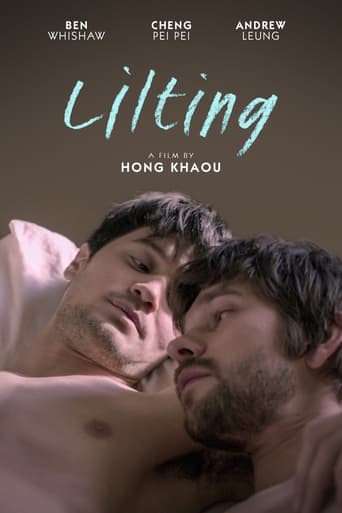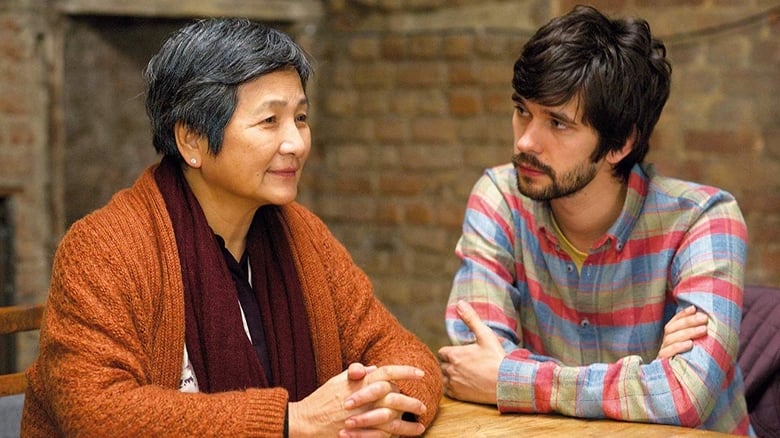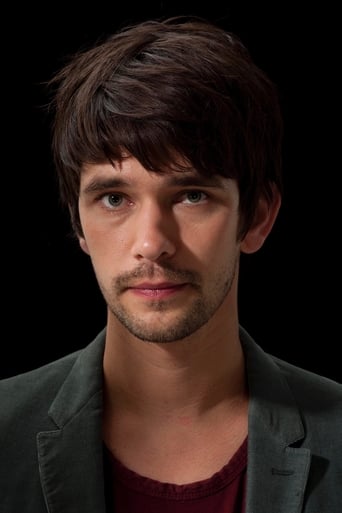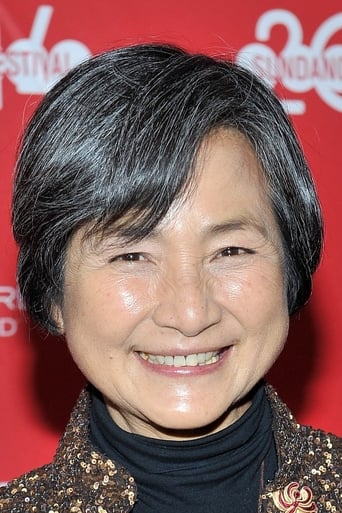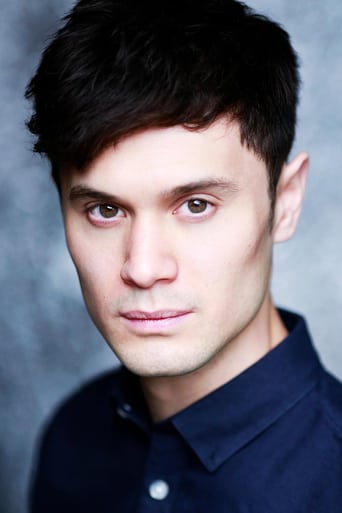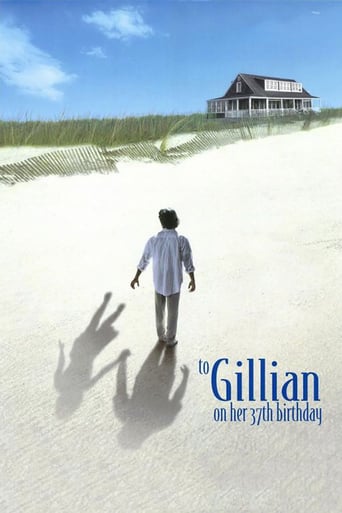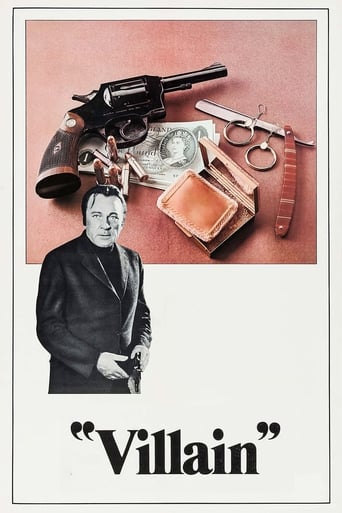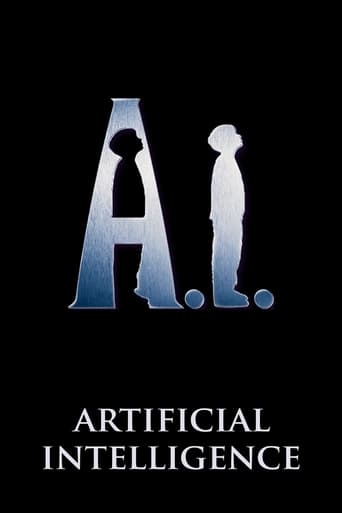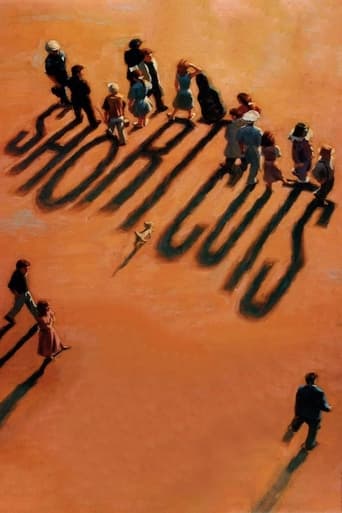Lilting (2014)
A young man of Chinese-Cambodian descent dies, leaving behind his isolated mother and his lover of four years. Though the two don't share a language, they grow close through their grief.
Watch Trailer
Cast
Similar titles

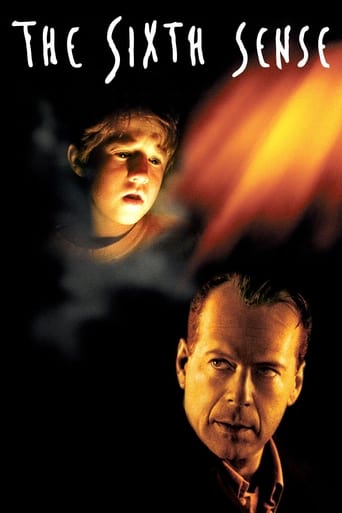
Reviews
Excellent, Without a doubt!!
Yo, there's no way for me to review this film without saying, take your *insert ethnicity + "ass" here* to see this film,like now. You have to see it in order to know what you're really messing with.
This film is so real. It treats its characters with so much care and sensitivity.
One of the most extraordinary films you will see this year. Take that as you want.
Hong Khaou's debut film Lilting offers a very interesting 'lost in translation' dynamic. What do you get when you put a homophobic elderly Chinese woman in the same room as her deceased son's boyfriend who feels a responsibility to her? Ben Whisaw and Pei-pei Cheng are terrific as the pair. Unfortunately the film is littered with flaws in its lack of restraint despite the limitation. It's very stilted in delivery, it makes an unwise decision to try to include the translator character into the drama without fully committing to her and it's tonally awkward with the comedic relief of the elderly woman's new boyfriend. Ghost characters reek of student film. Nevertheless the aesthetics are lovely with beautiful saturated wide angle cinematography and although it's slight in its runtime it's powerful in its tragedies, frustrations and ultimately the bonds forged. I'm sure Hong Khaou will continue to deliver poignant work and hopefully shred the inconsistencies.7/10
This is the debut feature film for Hong Khaou, and being of Cambodian descent, I imagine this movie may be semi-autobiographical, though that is obviously pure speculation. This interesting little film (running on an insanely low budget of 12,000 pounds if I am not mistaken) is about a Chinese-Cambodian elderly woman, Junn (veteran actress Pei-Pei Chang), who has just lost her son Kai, not long after he put her into a home. He was gay, but could never bring himself to tell his mother. This was the reason she ended up in the home and not living with him and his boyfriend Richard (Ben Whishaw). When Richard enters the fold initially he seems like a stranger, at least as far as Junn is concerned, and to make it harder, he can't communicate with Junn as she can speak 8 different dialects, but refuses to learn English despite living in the UK. Despite their differences, despite the overwhelming obstacles to hurdle, Richard is not intending on giving up trying to talk to his partner's mother. They share the same pain, but Junn has no idea of this. Since Junn doesn't know about the same-sex relationship her son was having, Richard's job becomes at least twice as tough, as he has to act as Kai's 'best friend', trying to connect with Junn that they both are sharing the same misery, the same loneliness and sense of loss after losing a loved one.Along the way Junn meets a gentleman who is also a resident at the home. Playing an amusingly dry old codger, Peter Bowles as Alan is smitten by Junn, yet they have no way of truly communicating. Richard rectifies this by hiring a translator, which helps both Alan and Richard as it opens up a dialog between the different parties, for better or worse. Richard continues to go to endless lengths to try and communicate and help Junn overcome her son's death, as unwilling as she seems, as well as trying to help negotiate the problems Junn and Alan are having; it seems the possibility of a relationship with Alan may be slim. And so the story goes, moving from this premise into emotional territory where each character's decision is not easy, and someone as stubborn as Junn makes life difficult for Richard and the translator he has to help smooth the process Which doesn't go as smoothly as planned.This film is extremely depressing at points and heartwarming at others. It is nice to see a film with a real heart without dipping into overly sentimental trite. The true unforgettable message that this film gave me was how it illustrated how culture can truly alienate us; from loved ones, from people who want to help. But at the same time, it highlights elements of the human condition that transcend culture, such as family, or music. I didn't think I'd enjoy this as much as I did, it isn't my type of film really. But I really liked it. Probably also because I have seen how truly heart-breaking it is to make that decision to put a parent/grandparent in a home really is. It ain't pretty.8/10 - If you aren't looking for action, and are interested in watching a more thought-provoking movie that really will pull at your emotions, check this one out. The absurdly low budget is not noticeable at all, especially given the quality of the production, from the perfect sequence of scenes, to the subtle but interesting photography work and the minimal but effective soundtrack.This isn't a film that I will revisit immediately, unlike many others than have been released this year. But I know that a time will come where I suddenly will have to put this on. It is a powerful, emotional film that subtly comments on the differences of cultures and/or language, the stigma that is still attached to same-sex couples, especially among older, more 'traditional' people, but most importantly, a few key scenes show us that differences in culture, in language, in beliefs, can be transcended, and no matter what the barriers between communication may be, humanity can prevail. It is not impossible to share true, meaningful moments with someone who cannot speak a word of your language. This film excels at showing this, linking us all as human, no matter our colour, our culture or our beliefs.
This is a gem. I wouldn't have watched it unless I had been taken. (Thank you, Beryle.) If it had been on TV, I might have watched some of it, but that is the joy of cinema. You have no distractions. I thought it might be depressing; it wasn't. I thought it wasn't my sort of film; it was. Thought-provoking.It was easy to forget that you were watching actors. The performances were that good and very moving. It was very much like a French film.It was interesting how much back-story was left out and yet it still worked. I asked myself a few questions because I wanted to know more. (Perhaps I felt I could help.) Where were we? (North-east London/Essex?) How long had she lived in England by depending on her husband and son for all communication with the outside world? What did people do for a living? Where did the translator come from and was she being paid? Without her son would she at last break out into the world? However I realised the back-story didn't matter. It told you all you needed to know. The nub was all that mattered: an insight into communication, memory and grief. Some things have to be said and some things are perhaps best left unsaid. The characters kept asking the translator not to translate after they had said something because they had time to see the effect it would have, (something that does not happen with a common language) but even the translator could not help but get involved.You could speculate on a happier outcome but the final scene where she drifted back to the last meeting with her son perhaps indicated it would be a while yet before she could move on.Very, very good.
Echoes of Wong Kar Wai resonate beautifully throughout this very moving and understated, and yet very funny film. It can be viewed as a study in grief and cross-cultural misunderstanding or even prejudice. Two people try to comes to terms with the death of the person they each love the most. They are on conflicting sides of desperate love triangle. Each seeks recognition, and each needs to place their love in, an unexpected, context. Each needs to be understood.In many Wong Kar Wai films the actors speak to each other in different languages with seeming full understanding. It suggests a disjuncture between time, place and culture, where language, usually the unifying factor within the narrative, becomes the source of each character's isolation. Lilting is self-conscious in its language play and it works powerfully to both comic and emotional effect. This has the magic effect of bending time. Locations are practically sparse, but the film gives the feeling of having moved us quite literally around the world.The film demonstrates that with translation, there is always something essential that is lost. This might be cultural sensitivity, the feeling that we understand when, actually, we do not. Thus, it questions the assumptions we all make. It might also be the feeling that we know something or someone when actually we do not.This may sound a heady, difficult mix. Far from it.The film is beautifully shot, and again we experience something of the camera work of Christopher Doyle (Wong Kar Wai's leading cinematographer) in the delicate and soft palate of colours, and subtlety of framing which are as evocative as the language play in evoking mood and location. Nothing is wasted in this film. Even landmark pieces of music (another Wong motif) sit perfectly within the cross cultural narrative.This is a film I will watch again and not simply for the references to Wong Kar Wai, It's a seamless depiction of loss in a world of seeming falling borders.I hope you enjoy the film as much as I have.
